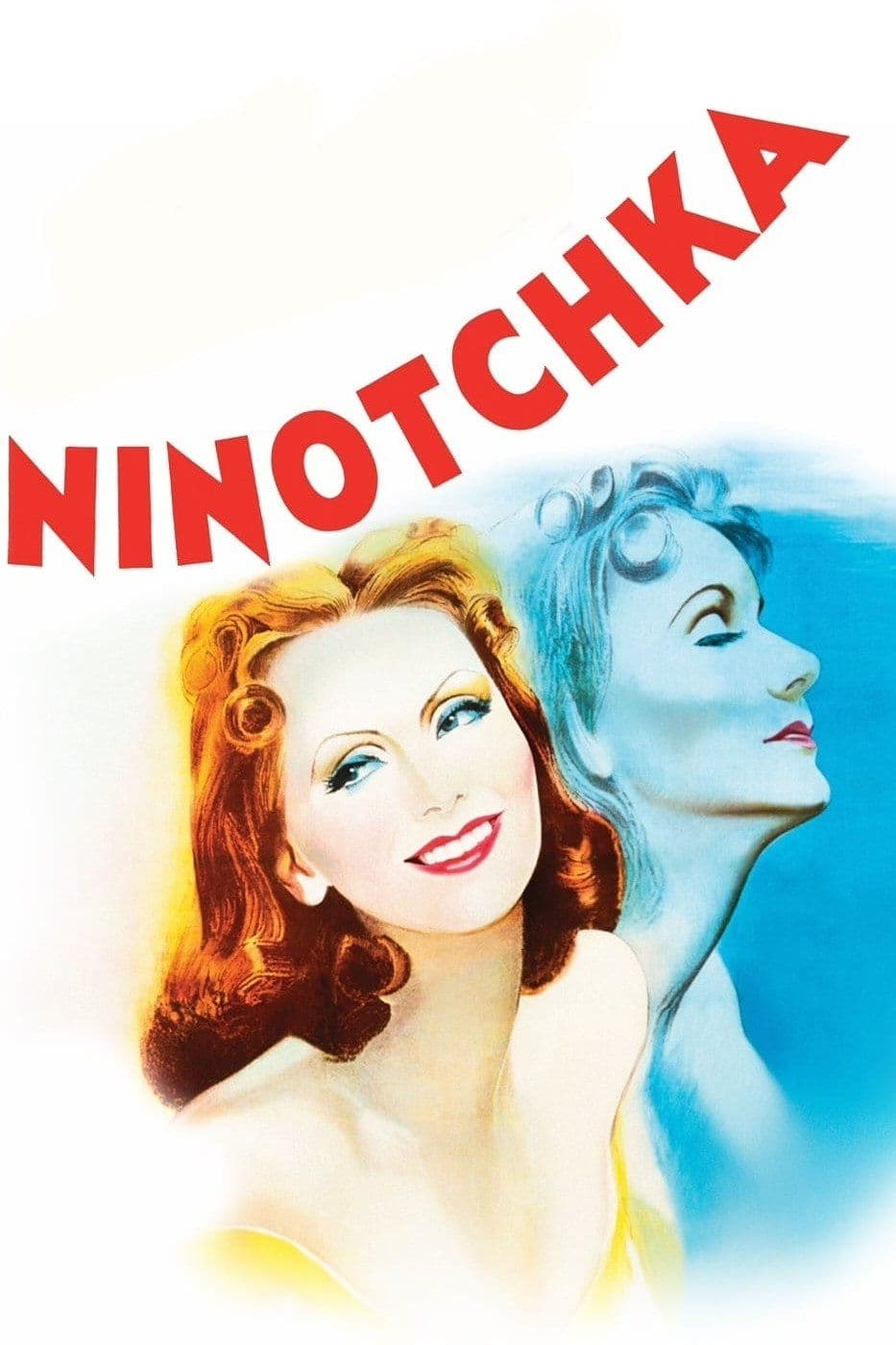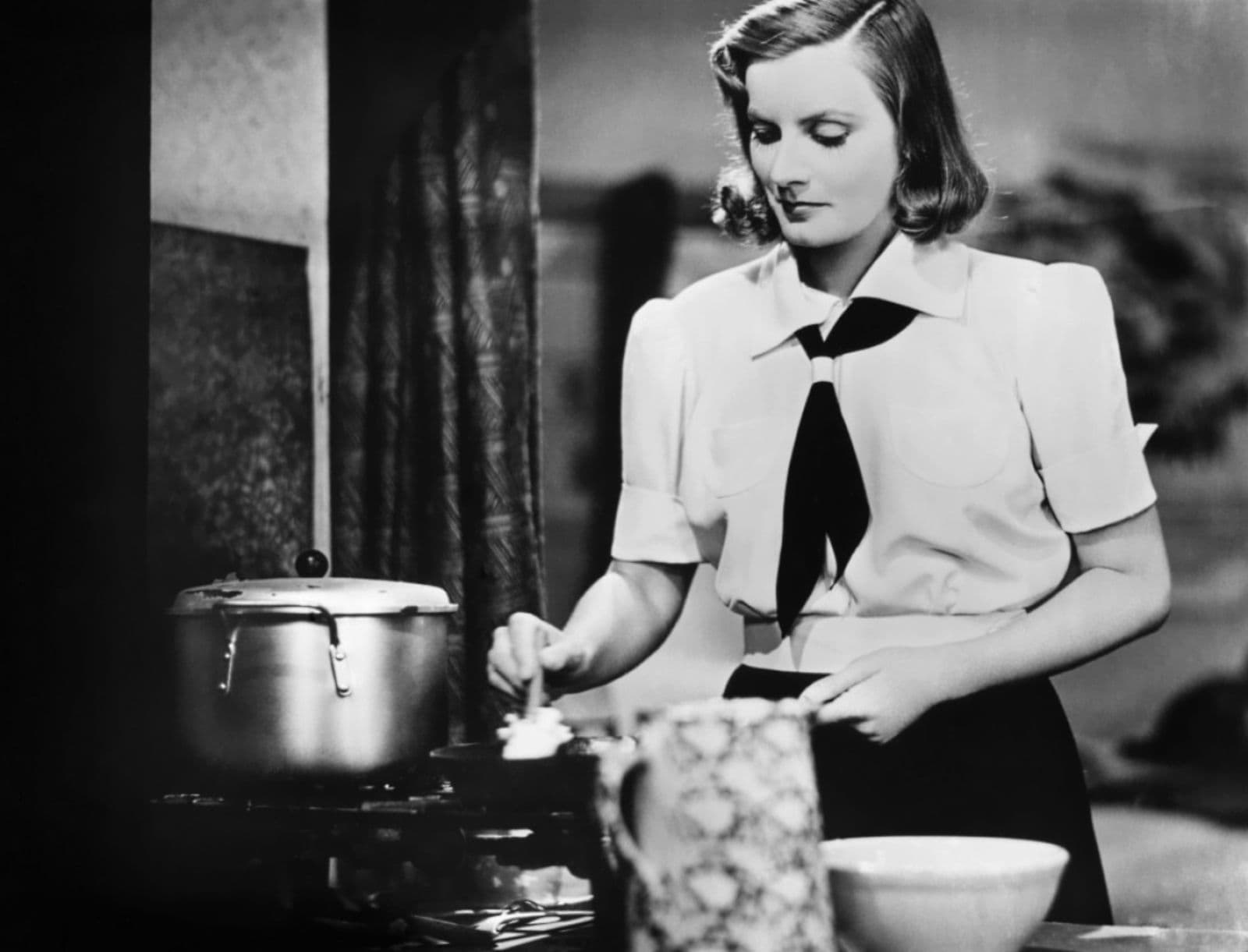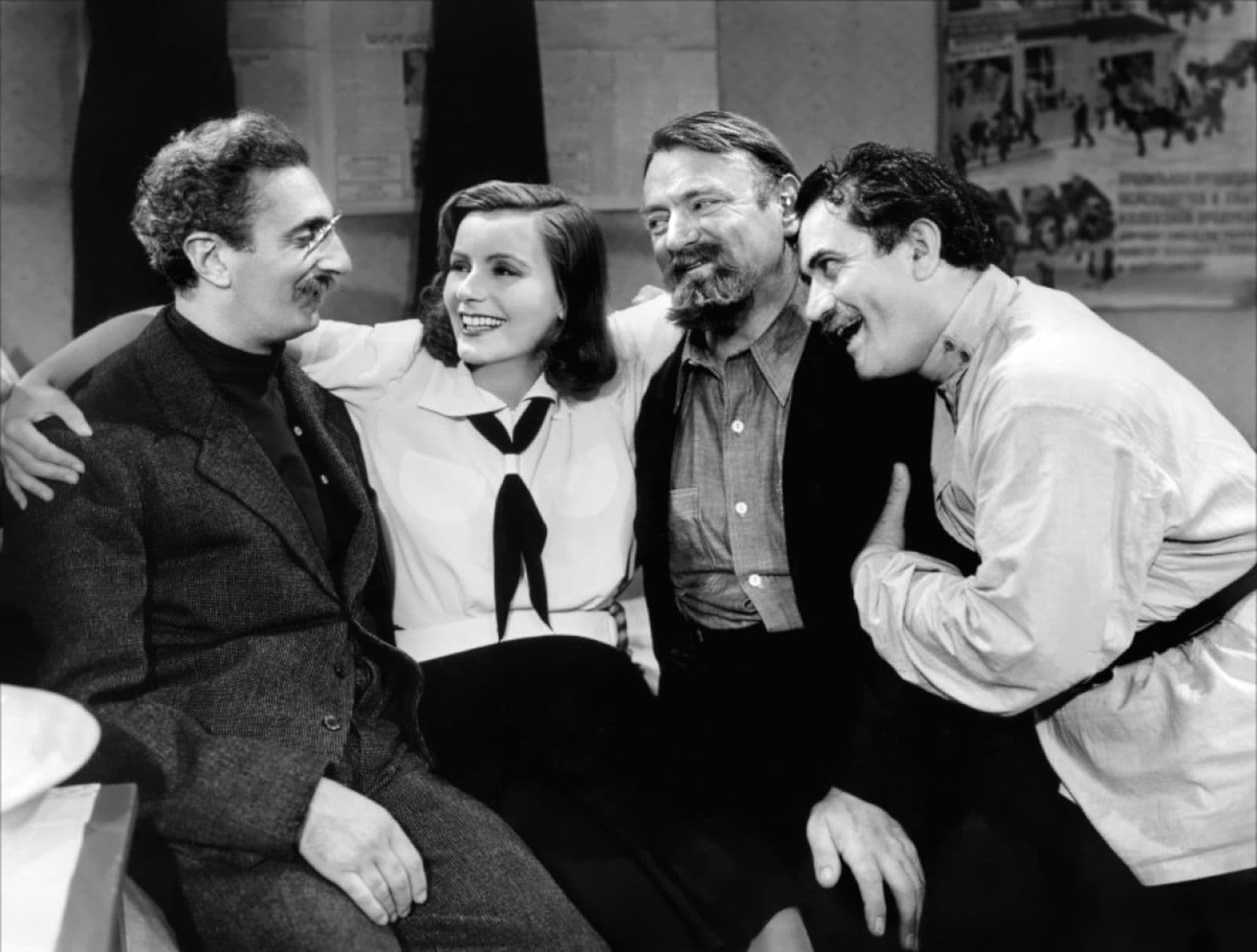
Ninotchka
1939
Rate this movie
Average: 0.00 / 5
(0 votes)
Director
A film in which Lubitsch, with his stylistic refinement, perfectly manages to portray the metamorphosis of a woman: from a rigid bureaucrat to an ethereal and graceful creature in love.
The key to understanding the work lies entirely here, in this female figure into which Greta Garbo infuses life through a subtle and ironic performance.
Ninotchka is a sophisticated and brilliant comedy that, with a touch of satire and romanticism, tells the transformation of a rigid Soviet official grappling with the temptations and frivolities of capitalist Paris.
Ernst Lubitsch, master of elegant and refined comedy, directs Greta Garbo in a role that sees her shed her tragic diva persona to take on that of a woman initially cold and detached, but destined to rediscover her femininity and emotions.
Ninotchka (Greta Garbo), an inflexible Soviet comrade, is sent to Paris to recover jewels that belonged to the Russian aristocracy and have fallen into the hands of an exiled Grand Duchess.
Her mission is to sell the jewels to finance the Soviet regime.
In Paris, Ninotchka meets Léon (Melvyn Douglas), a charming count who tries to help the Grand Duchess regain possession of her jewels.
Initially, Ninotchka is immune to the charm of Paris and Léon's gallant ways, remaining true to her communist ideals.
But gradually, Parisian life, with its restaurants, shops, and parties, begins to seduce her.
Léon introduces her to the pleasure of good food, fashion, and entertainment, and Ninotchka discovers a side of herself she didn't know.
Her love for Léon transforms her deeply, making her doubt her ideals and opening her heart to emotions.
The film concludes with Ninotchka and Léon finding themselves in Turkey, free to live their love away from the restrictions of the Soviet regime and social conventions.
A film where dialogues play a primary role: subtle, fast-paced, and perfectly tailored to each character, they are the heart of a great director's worldview.
Lubitsch once again manages to amaze with his ability to combine political satire, sophisticated comedy, and romanticism, making it a unique and timeless work.
With his elegant and ironic direction, the German director manages to treat delicate themes like communism and capitalism with a touch of lightness and intelligence.
The film was erroneously interpreted as a critique of Soviet totalitarianism.
Communism is initially represented through the early Ninotchka: rigid, disciplined, and devoted to party ideals.
Her austere clothing, her glacial demeanor, and her aversion to luxury and entertainment embody the image of a rigid system devoid of spontaneity.
The three Soviet emissaries, Iranoff, Buljanoff, and Kopalski, are depicted as incompetent and clumsy, unable to complete their mission due to the bureaucracy and inefficiencies of the Soviet system.
Capitalism is represented through frivolous and worldly Paris, with its elegant restaurants, luxurious hotels, and lavish parties.
The Parisian characters are depicted as superficial and materialistic, concerned only with entertainment and appearances.
Ninotchka neither demonizes communism nor capitalism, but shows their strengths and weaknesses.
The film suggests that both systems have their limits and contradictions.
Ninotchka, through her journey of transformation, learns to appreciate certain aspects of capitalism, such as individual freedom and the joy of living, without, however, completely renouncing her ideals.
The film concludes with a kind of synthesis between the two worlds, with Ninotchka and Léon finding themselves in a neutral country, Turkey, where they can live their love free from any ideological constraint.
Country
Gallery






Featured Videos
Official Trailer
Memorable Scene
Comments
Loading comments...